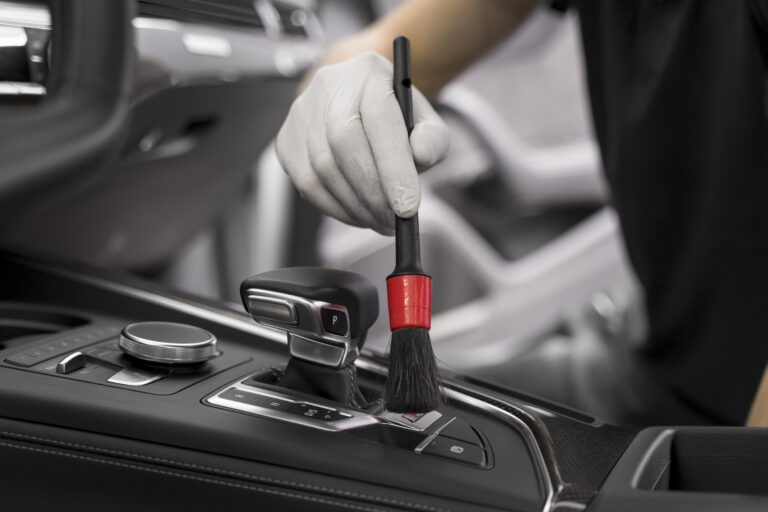
Pros and Cons Buying Used Car: Comprehensive Guide
In the vast landscape of the automotive world, where choices sprawl like an intricate network of roads, one crucial decision looms on the horizon: should you steer your way towards the allure of a brand-new car or give-in to purchasing a pre-owned vehicle? This article will be your trusty roadmap, guiding you through the maze of the pros and cons of buying a used car.
Imagine this journey as an exploration of a treasure chest, filled with unique vehicles, each with it’s own captivating story to tell. But before you dive into this automotive adventure, it’s essential to put on your explorer’s hat and weigh the pros and cons, ensuring you navigate these roads with confidence.
Table of Contents
Introduction: Navigating the Maze of Buying a Used Car
- Exploring the Decision Between New and Used Cars
- The Allure of Used Cars
- Pros and Cons of Buying a Used Car
- The Pros: Why Buying a Used Car Makes Sense
- Cost Savings Galore
- Lower Insurance Premiums
- Avoiding the Depreciation Plunge
- Access to a Wider Range of Models
- Proven Reliability
- Eco-Friendly Choice
Pros and Cons of Buying Used Car
- The Cons: The Roadblocks on the Used Car Journey
- Uncertain Vehicle History
- Limited Warranty
- Higher Maintenance Costs
- Outdated Technology
- Risk of Hidden Issues
- Financing Challenges
- FAQs: Answering Your Burning Questions
- Is it better to buy from a dealership or a private seller?
- What should I look for when inspecting a used car?
- How can I negotiate a good deal on a used car?
- Should I consider certified pre-owned (CPO) cars?
- What’s the best way to finance a used car?
- Is it wise to buy a used luxury car?
- Conclusion: Navigating the Used Car Marketplace
- Weighing the Pros and Cons
- Making an Informed Choice
- The Rewarding Journey of Owning a Pre-Loved Vehicle
The Allure of Used Cars
Before we move into the intricacies of buying a used car, let’s take a moment to appreciate the allure of these pre-loved used vehicles. The road ahead is filled with twists and turns, and it’s up to you to choose the path that best suits your needs, desires, and budget. It’s about finding that perfect vehicle that not only gets you from point A to point B but also becomes an integral part of your life.
As we navigate this maze together, you’ll discover the hidden treasures and potential pitfalls, and ultimately, you’ll be better prepared to make a choice that aligns with your unique automotive dreams.
Pros and Cons of Buying a Used Car
You might be wondering, what’s the fuss about used cars? Well, my friend, the world of pre-loved automobiles is as vast as it is intriguing. It’s like exploring a vintage store, where each car tells a unique story. But, before you dive into this automotive treasure hunt, let’s weigh the pros and cons to ensure you navigate roads with confidence.
The Pros: Why Buying a Used Car Makes Sense
Now it’s time to shine a spotlight on the dazzling array of advantages that come with choosing a pre-owned vehicle. With automotive decisions, opting for a used car can be akin to unlocking a treasure chest filled with sparkling gems.
1. Cost Savings Galore
Imagine strolling into a high-end boutique, eyeing that elegant dress or dashing suit, but then you spot a slightly pre-worn version that’s equally stylish and significantly cheaper. That’s the magic of buying a used car. New cars may boast that intoxicating new car smell, but they also come with a hefty price tag. Used cars, on the other hand, have already gracefully descended down the depreciation hill. This means you can drive home in a vehicle that’s virtually identical to the new model at a fraction of the cost.
2. Lower Insurance Premiums
Just as you’d pay less for insurance on a well-maintained historic home compared to a brand-new mansion, insuring a used car often comes with significantly lower premiums. Insurance companies consider used cars to be less of a risk, as they will be less costly to replace or repair in case of an accident. This translates into substantial savings in your pocket, allowing you to allocate your hard-earned money elsewhere.
3. Avoiding the Depreciation Plunge
Think of a new car as a freshly baked pie – as soon as you cut that first slice (or drive it off the lot), its value starts to crumble. This depreciation phenomenon can be a tough pill to swallow for new car buyers. However, when you opt for a used car, you sidestep this painful reality. The previous owner has already absorbed the initial depreciation hit, leaving you with a vehicle that retains its value more effectively.
4. Access to a Wider Range of Models
Buying a used car opens doors to a broader spectrum of models and makes. The budget that might restrict your choices in the new car suddenly becomes a gateway to exploring various vehicles. That dream car you’ve always coveted might just be within reach in its gently-used form.
5. Proven Reliability
One of the greatest perks of buying a used car is the potential insight you gain into its history. Many used cars come complete with a meticulous maintenance history, a valuable roadmap of how the vehicle has been cared for over the years. You’ll know if it’s been pampered, maintained regularly, and treated with the love and attention a reliable companion deserves. This transparency can be a significant peace-of-mind booster.
6. Eco-Friendly Choice
As we are concerned about environmental impact, choosing a used car can be a small but meaningful step towards sustainability. When you buy used, you’re essentially recycling an existing vehicle. This reduces the demand for new car production, which can have a significant carbon footprint. Your decision to go pre-owned isn’t just financially savvy; it’s also eco-friendly.
As we continue through the pros and cons of buying a used car, remember that the advantages of affordability, lower insurance costs, depreciation mitigation, model diversity, reliability, and sustainability all play a role in steering you toward a satisfying used car purchase. While there are certainly cons to consider, the pros, as you can see, are compelling reasons to explore the world of pre-owned vehicles with enthusiasm and confidence.
Pros and Cons of Buying a Used Car
Now that we’ve glimpsed at the bright side, let’s not forget that even roses have thorns. Before we dive deeper, remember that balance is key when it comes to used car shopping. Let’s now explore the flip side of the coin.
The Cons: The Roadblocks on the Used Car Journey
As we tread further down the winding road of considering a used car purchase, it’s imperative to shine a light on the shadows that lurks in the corners of this intriguing journey. Just as any adventure has its challenges, so does path to buying a pre-owned vehicle. These roadblocks, while not bulletproof, require careful navigation to ensure your used car experience remains smooth and satisfying. Let’s explore the cons, the potential bumps in the road, that you might encounter:

7. Uncertain Vehicle History
When you opt for a used car, you inherit its history—both the good and the not-so-good. While many sellers are forthcoming with vehicle history reports, others might be less transparent. This uncertainty can leave you in the dark about past accidents, repairs, or maintenance issues that could affect the car’s future performance.
8. Limited Warranty
Unlike a brand-new car with comprehensive warranty coverage, used cars often come with limited or no warranty. This means you’re on your own if unexpected problems arise shortly after the purchase. Repair bills can add up quickly, potentially offsetting the initial cost savings.
9. Higher Maintenance Costs
As cars age, they tend to require more frequent maintenance and repairs. Even if a used car has been well-maintained by its previous owner, it’s inevitable that components will wear out over time. Budgeting for potential repair costs is essential, as unexpected breakdowns can be both inconvenient and expensive.
10. Outdated Technology
In today’s fast-paced world, automotive technology evolves at a breakneck pace. Newer cars boast the latest safety features, advanced infotainment systems, and improved fuel efficiency. When you buy a used car, you might miss out on these cutting-edge innovations, driving a vehicle with outdated technology.
11. Risk of Hidden Issues
Despite your best efforts to inspect a used car thoroughly, there’s always a level of uncertainty. Hidden issues, whether mechanical, structural, or electrical, can elude even the most meticulous inspection. It’s a gamble, and sometimes, unwelcome surprises can emerge after the purchase.
12. Financing Challenges
Securing a loan for a used car may not be as straightforward as financing a new one. Interest rates for used cars can be higher, and loan terms may not be as favorable. Navigating the financial aspect of buying a used car can require extra diligence and potentially result in less favorable loan terms.
These cons, while certainly worth considering, should not deter you entirely from the idea of buying a used car. Instead, they should serve as cautionary guideposts, prompting you to approach the process with careful research and preparation. Knowledge is your ally in this journey; by understanding the potential pitfalls, you can take steps to mitigate these challenges and ensure a satisfying used car experience.
FAQs: Answering Your Burning Questions
Q1. Is it better to buy from a dealership or a private seller?
A1. Both options have their pros and cons. Dealerships offer more extensive warranties and a higher degree of accountability. Private sellers might have lower prices but come with fewer guarantees.
Q2. What should I look for when inspecting a used car?
A2. Pay attention to the vehicle’s maintenance history, accident reports, and overall condition. Consider getting a trusted mechanic to perform a pre-purchase inspection.
Q3. How can I negotiate a good deal on a used car?
A3. Research the fair market value of the car, get a vehicle history report, and be prepared to walk away if the price isn’t right. Negotiation is a skill; use it wisely.
Q4. Should I consider certified pre-owned (CPO) cars?
A4. CPO cars are rigorously inspected, come with extended warranties, and often provide peace of mind. However, they are typically more expensive than regular used cars.
Q5. What’s the best way to finance a used car?
A5. Shop around for the best interest rates and terms. Credit unions and online lenders may offer competitive rates. Ensure you understand the loan terms before committing.
Q6. Is it wise to buy a used luxury car?
A6. It can be a smart choice, as you’ll get a taste of luxury at a lower price point. However, be aware that maintenance and repair costs for luxury vehicles can be steep.
Conclusion: Navigating the Used Car Marketplace
In the market of used cars, opportunities abound, but there are also challenges. Whether you’re seeking affordability, a wider range of models, or simply want to minimize depreciation, the pros of buying used cars are alluring. However, tread carefully, as uncertain vehicle histories, potential maintenance costs, and outdated technology are lurking cons.
What’s the verdict? The decision ultimately hinges on your priorities and risk tolerance. When you do, the road to owning a pre-loved vehicle can be a rewarding journey.
In the world of used cars, surprises are best left for birthday parties, not your automobile purchase. Keep looking and researching vehicles, and you’ll find the perfect ride to complement your lifestyle.
Read our article: Unlocking secrets to purchasing used car







